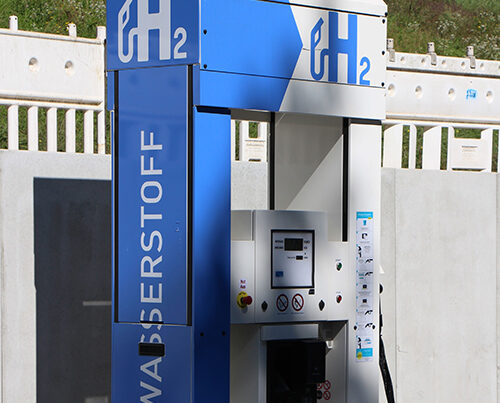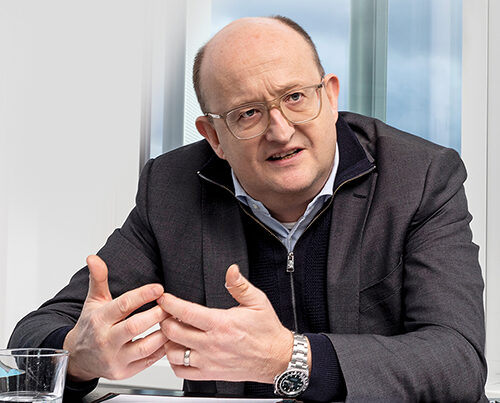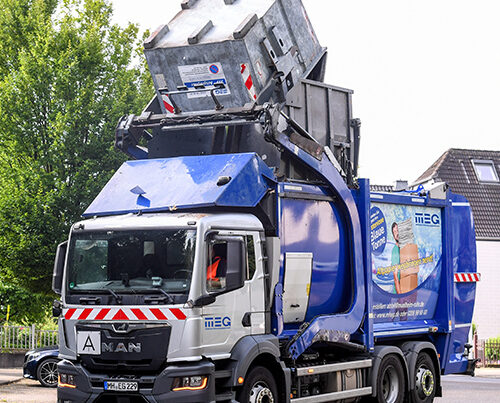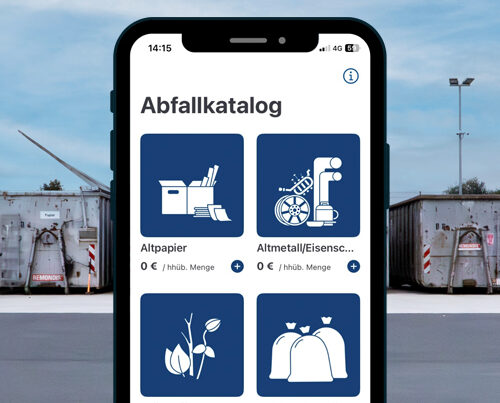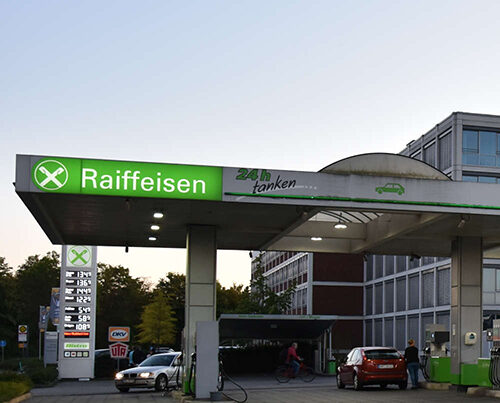Bremerhaven, the beginning of the 70s. The landfills are full. The town, located in the ‘Elbe-Weser triangle’, is heading towards a waste management crisis. Home to just over 100,000 inhabitants, it does not have many options: there are no more suitable areas within its boundaries for setting up another landfill and no one in the regions surrounding Bremerhaven is prepared to take its waste. And so, the city’s councillors made a virtue out of necessity and planned a waste-to-energy (WtE) plant that has been supplying energy to the town since 1976.
The far-sightedness of this decision, which was also made in the wake of the oil crisis, cannot be valued highly enough. And it also says quite a bit about the resourceful, quiet and pragmatic way Bremerhaven has been tackling the challenges of structural change for decades now. “Our WtE plant has always been a cogeneration plant, producing heat and power,” commented Dr Addissou Lothar Makonnen, one of BEG’s two managing directors. A plant with state-of-the-art technology at a time when most of the local authorities in Germany were still carelessly sending their waste to landfill. “The decision to build a WtE plant was a strategic step to establish sustainable recycling practices in Bremerhaven and to find a solution to our waste problems once and for all,” Makonnen continued.
In the past, the tasks of recycling waste and treating wastewater were carried out by two separate companies: MBA (Gemeinnützige Müllbeseitigungsanlage Bremerhaven GmbH) was in charge of waste management and ZKA (Zentralkläranlage Bremerhaven GmbH) of wastewater treatment. “But why do we need to have two separate firms to do this? Synergies can be created when you have just one company,” Makonnen said. Which was why Bremerhaven decided to merge the two firms to create BEG (Bremerhavener Entsorgungsgesellschaft) at the beginning of the 90s. This merger laid the groundwork for centrally organising waste and wastewater treatment in Bremerhaven – a system that could act as a role model across Germany.
Set up originally as a non-profit limited liability firm, this new company made it possible for the City of Bremerhaven to make the most of synergies and set up a more efficient infrastructure for managing its waste and wastewater. “MBA and ZKA were municipal companies that existed totally separately from one another, side by side, and were fully owned by the City of Bremerhaven,” recalled Stefan Ketteler, also a managing director at BEG. The merger helped BEG to use its resources more efficiently and to respond more quickly to changing conditions.
Bremerhaven shocked by the Vulkan crisis
In the middle of the 90s, Bremerhaven’s economy was hit by a shockwave – the result of the ‘Vulkan crisis’, as it was referred to back then. This crisis was triggered when the Vulkan shipyard declared insolvency. This shipyard had a long history in the city and was a major employer and economic motor across the region. The collapse of this maritime giant not only meant the loss of thousands of jobs; it also had a considerable financial impact on the town’s public purse.
Once again Bremerhaven reacted with a mixture of resourcefulness and pragmatism: the city council decided to privatise a part of BEG to stabilise its financial situation.
As part of this restructuring process, a consortium of the then utility company Stadtwerke Bremen (today: swb), the Bremen-based waste management firm Nehlsen and the then Rethmann AG sought to purchase a 74.9% share in BEG. However, this was not possible for competition reasons and so the now REMONDIS Group acquired the shares in 2003 and Nehlsen received a small 5% share of the privatised share of BEG via a holding company. This marked the beginning of the successful public private partnership that is well-known today for its efficient and sustainable waste recycling and wastewater treatment solutions in Bremerhaven.
Bremerhaven’s picturesque setting is not the only thing that stands out. The town set the standards for its circular economy at a very early stage – in a resourceful and pragmatic way

Fire: the WtE plant – a bedrock of reliability
As part of this public private partnership, BEG turned the WtE plant into a bedrock of reliability that is able to treat waste and supply energy no matter how difficult the economic situation faced by the town may be. Today, the WtE plant has become a key component of Bremerhaven’s energy supply: “Bremerhaven’s district heat network is supplied almost exclusively by our WtE plant,” remarked Makonnen. The benefits here are obvious: using this environmentally friendly waste heat from the thermal treatment process reduces the need for fossil fuels and decarbonises the town’s district heat network. The non-recyclable waste must be incinerated anyway; making the most of the heat produced by this process conserves natural resources and is, therefore, a fundamental component of a responsible circular economy.
The legislator is of the same opinion nowadays. Germany’s new ‘Wärmeplanungsgesetz’ (WPG/Heat Planning Act) puts waste heat generated by the thermal treatment of waste on a par with renewable energy. This law categorises this waste heat as ‘unavoidable’ and considers it to be effectively climate neutral, promoting its use in district heat networks. Bremerhaven has already been practising this new legal basis for many years now.
BEG not only supplies the town with district heat. It also performs another key public task, namely providing this coastal town with electricity. The WtE plant is the largest electricity producer in Bremerhaven. “If the worst comes to the worst, we play a key role in providing emergency supplies of electricity,” Makonnen explained.
The fact that BEG has been able to take on such an important local role can be put down to the regular investments that have been made in state-of-the-art technology and to the foresight of those making the decisions. Since the partial privatisation of BEG, top priority has been given to investing regularly in both the facilities and the infrastructure. “The most important thing was – and still is – to expand the existing infrastructure and adapt it to the latest requirements,” Ketteler stressed.
“The most important thing was – and still is – to expand the existing infrastructure and adapt it to the latest requirements.”
Stefan Ketteler, Managing Director of BEG
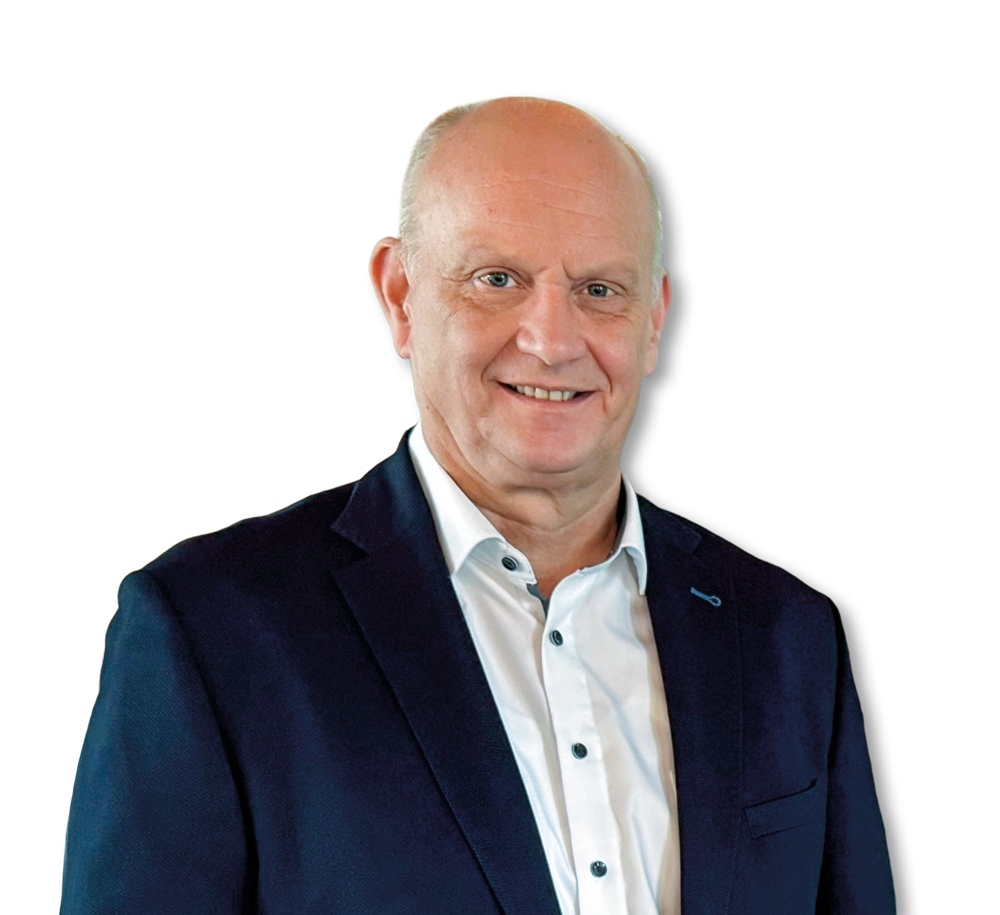
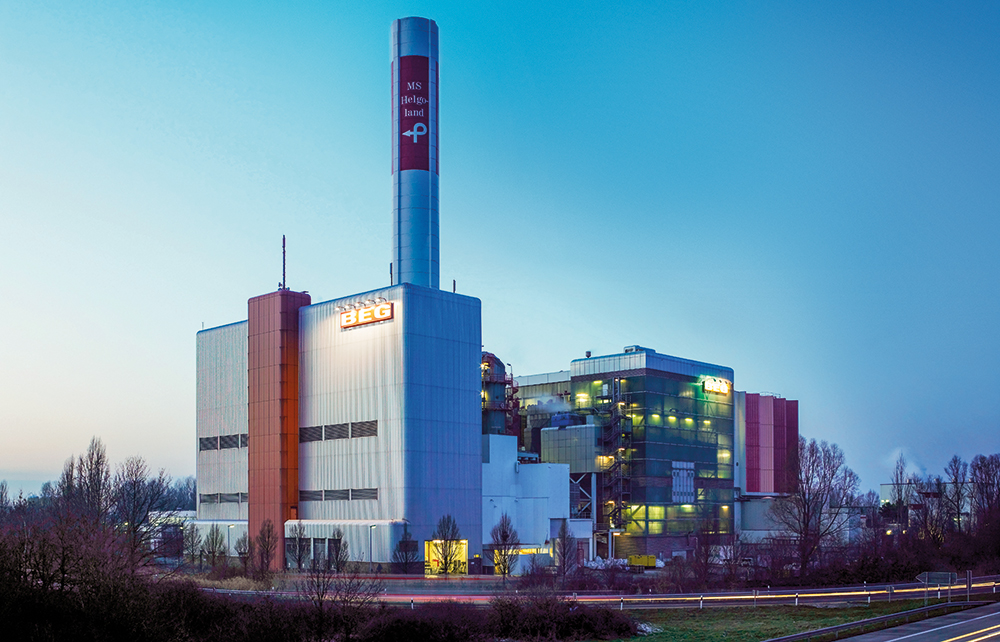
Fire: The WtE plant has been supplying the town with energy since 1976
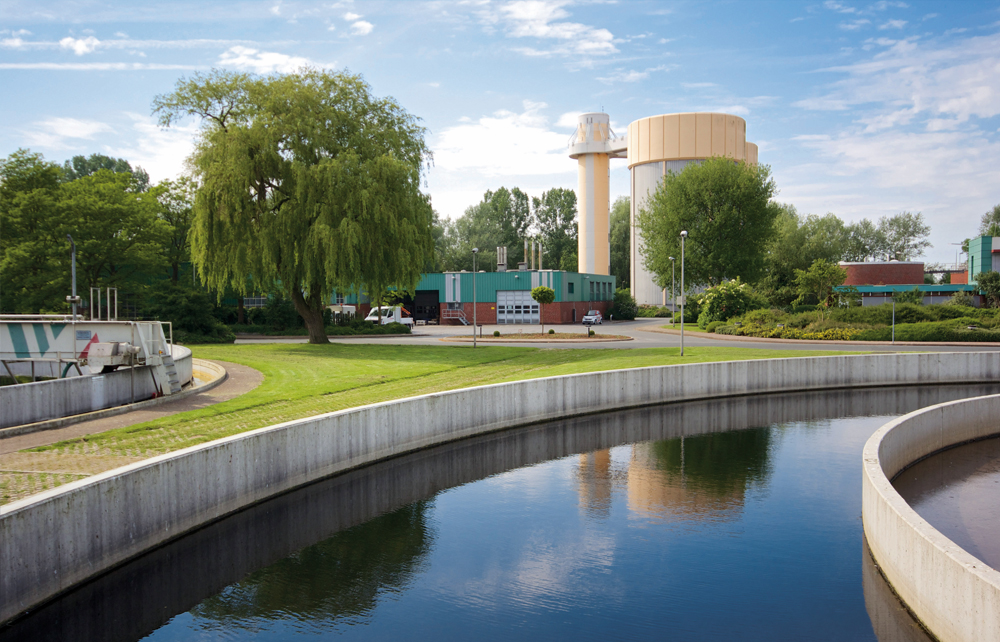
Water: The central sewage treatment plant guarantees wastewater treatment for a total of 175,000 people
Water: a top technological performance at the ZKA
The ZKA, the central sewage treatment plant, is also a prime example of this strategic foresight. Treating 55,000m³ of wastewater every day, it is the largest of its kind within the REMONDIS Group and delivers reliable wastewater treatment services to a total of 175,000 people. The ZKA not only treats the wastewater produced by Bremerhaven’s approximately 115,000 local inhabitants but also wastewater from the town of Langen, the district of Loxstedt, the fishing harbour and international port, and parts of the district of Schiffdorf.
One of the ZKA’s key strengths is that it is energy self-sufficient. By recovering energy from sewage gas and using modern combined heat and power units, the plant has been producing all the heat and electricity it needs itself since 2015. In many cities, sewage treatment plants are the biggest municipal consumer of energy – not so in Bremerhaven.
“It has always been important to us to take both economic and environmental factors into consideration whenever decisions have to made,” Ketteler stressed. This also applies to the 600km-long sewer network that BEG operates on behalf of the City of Bremerhaven. “Every year, we renovate six to seven kilometres of the sewer network,” Ketteler continued. A task that costs BEG around 4.5 million euros each year.

Better together – a strong partnership
As BEG now works cost-efficiently – thanks also to this public private partnership – these expenses no longer have a negative impact on the town’s public coffers. And the waste management fees also no longer need to be subsidised by some other part of the city council. Instead, the town receives profits from BEG’s operations. And it provides 300 secure jobs in a town that continues to face the challenges caused by structural change.
The fact that the City of Bremerhaven and REMONDIS get on so well can be put down to the fair way the partners treat each other and the trust they have in one another.
“REMONDIS and the City of Bremerhaven have always trusted each other – right from the very beginning,” Ketteler said. The decisions made, for example, by the various committees are unanimous. The city council’s issues are taken into account alongside the business requirements. This harmonious collaboration promotes BEG’s performance capabilities and ensures that these key services are delivered quietly and reliably.
BEG also has some ambitious plans for the future. Its wastewater treatment division intends to continue renovating the sewer network pipes as well as to introduce a fourth treatment stage. “We are already discussing these plans with universities, research institutes and other sewage treatment plant operators,” Ketteler explained.
BEG’s waste management division is looking to further develop its WtE plant and expand the amount of district heat it provides to further decarbonise energy supply. “This is not just good for the climate. We must also become more independent so that we are less impacted by global economic and political developments – events that we are unable to influence,” Makonnen concluded.
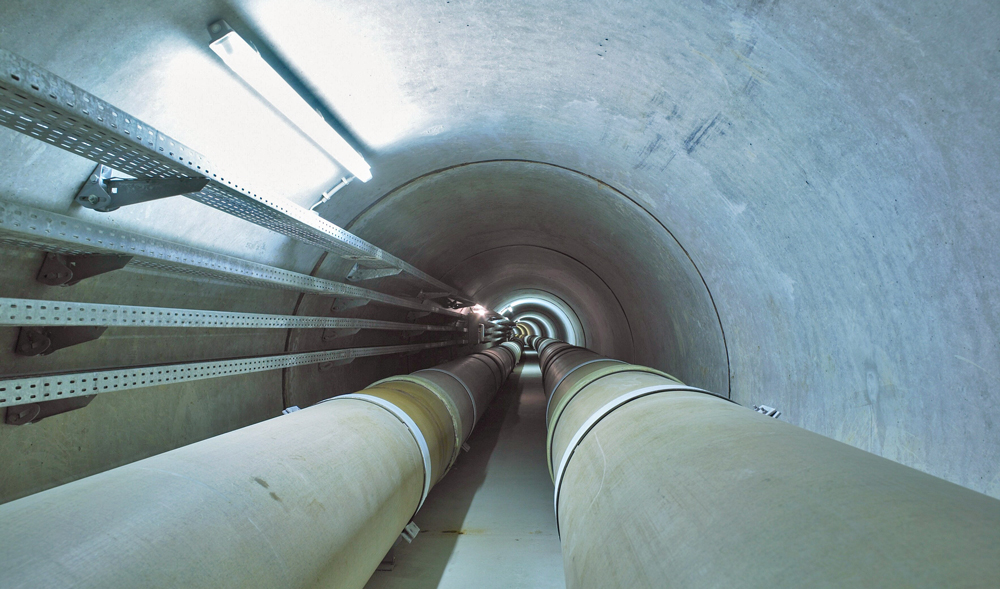
The long-term plans are to expand the district heat supply network
Foresight, resourcefulness and pragmatism will continue to guide the fortunes of BEG in the future as well – and the City of Bremerhaven need not worry about the investment costs thanks to this strong partnership.
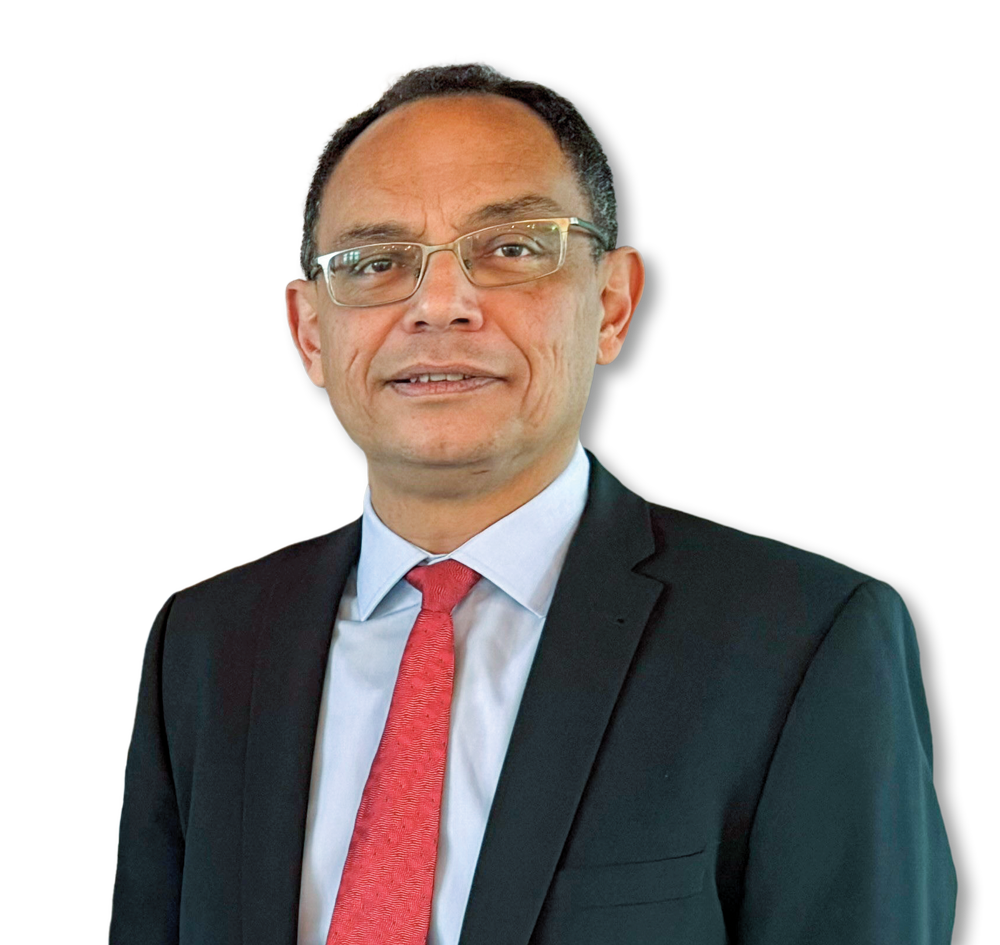
“We must also become more independent so that we are less impacted by global economic and political developments – events that we are unable to influence.”
Dr Addissou Lothar Makonnen, Managing Director of BEG
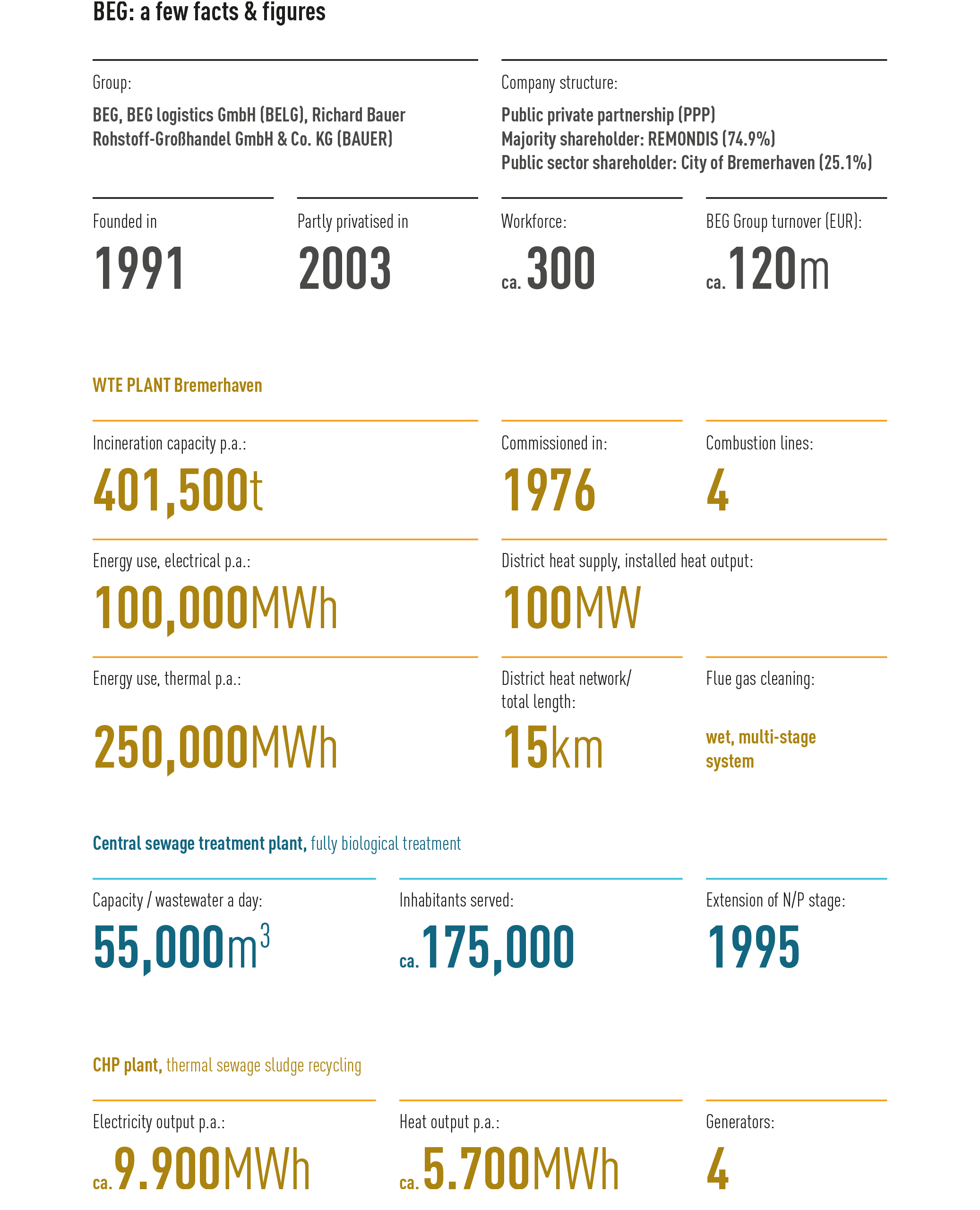
Image credits: image 1: Adobe Stock: New Africa, DedMityay, © REMONDIS; image 2: Adobe Stock: venemama; image 3 – 7: © REMONDIS







